7 Things Cats Love That Most Owners Don’t Do Enough And 8 Things They Secretly Want You To Stop Doing
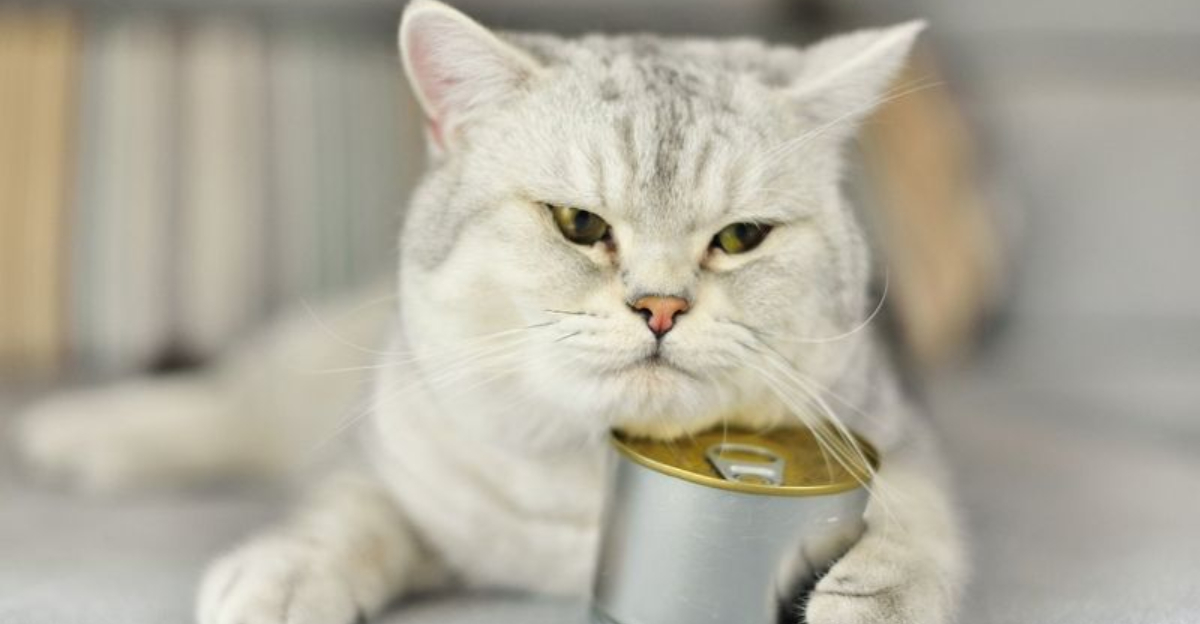
Our feline friends communicate in mysterious ways, often leaving us guessing what truly makes them purr with delight.
While we shower them with love and attention, there are certain activities cats absolutely adore that many of us overlook. Even more importantly, some of our well-intentioned habits might actually be driving our kitties crazy!
1. Slow Blinking Conversations
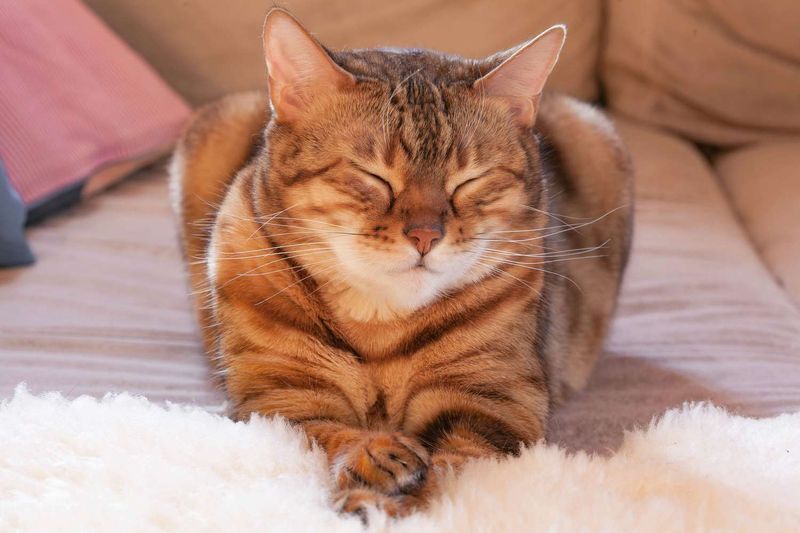
Cats adore when you slow blink at them. This gentle eye closing is actually cat language for “I trust you” and “I love you.” Many cat owners miss this opportunity for meaningful connection.
Next time your kitty is calmly observing you, try softly closing your eyes for a second or two. You might be surprised when they blink back, essentially blowing you a kitty kiss!
2. Elevated Resting Spots
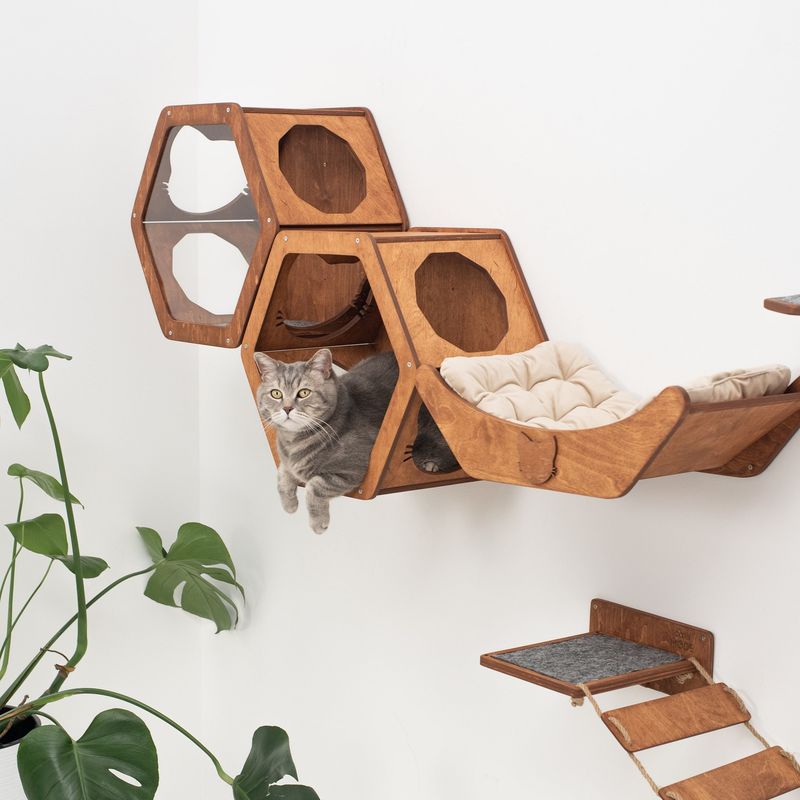
Cats naturally seek high places where they can survey their kingdom safely. This instinct comes from their wild ancestors who needed height for hunting and avoiding predators.
Creating multiple levels in your home with cat shelves, tall cat trees, or cleared bookshelf spaces gives your feline friend security and satisfaction. Their confidence visibly increases when they have vertical territory to claim as their own.
3. Hunting Play Sessions
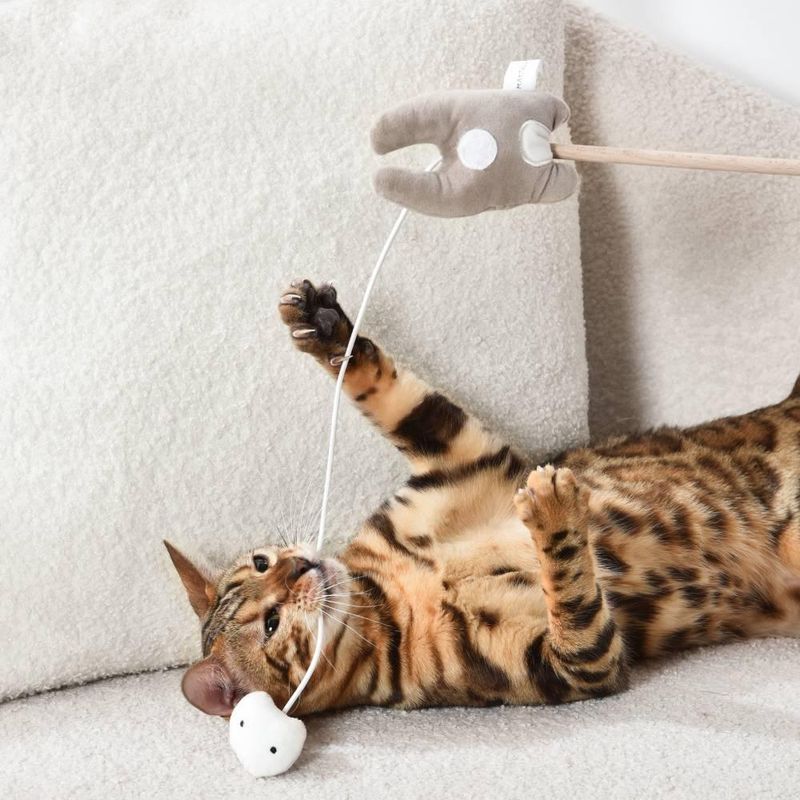
Your house cat still carries hunting instincts that need regular expression. Interactive toys that mimic prey movements satisfy this deep-seated need far better than static toys.
Wand toys with feathers or small attachments that you control create the unpredictable movements cats love. Just 10 minutes twice daily of active play hunting can reduce behavior problems and keep your cat mentally stimulated and physically fit.
4. Dedicated Scratching Stations
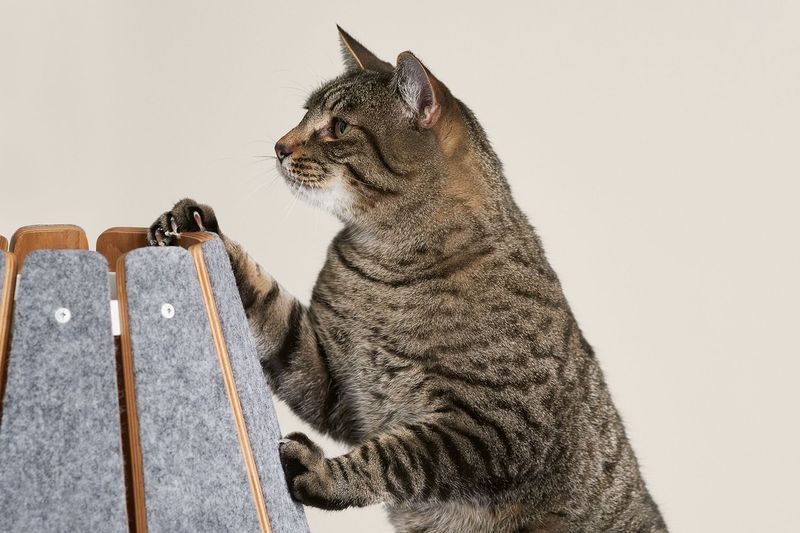
Scratching isn’t just about claw maintenance. Cats mark territory through scent glands in their paws while also stretching muscles and relieving stress.
Offering various scratching surfaces like vertical posts, horizontal pads, and different textures gives your cat options. Place these items near sleeping areas and in social spaces where your cat likes to hang out for maximum use and enjoyment.
5. Scheduled Feeding Rituals

Cats thrive on predictable routines that satisfy their instinctual need for security. Regular feeding times create a comforting rhythm to their day that reduces anxiety.
Consider puzzle feeders or food-dispensing toys that make meals more engaging. These tools simulate hunting by making your cat work a little for their food, providing mental stimulation while slowing down fast eaters who might otherwise have digestive issues.
6. Respect For Personal Space
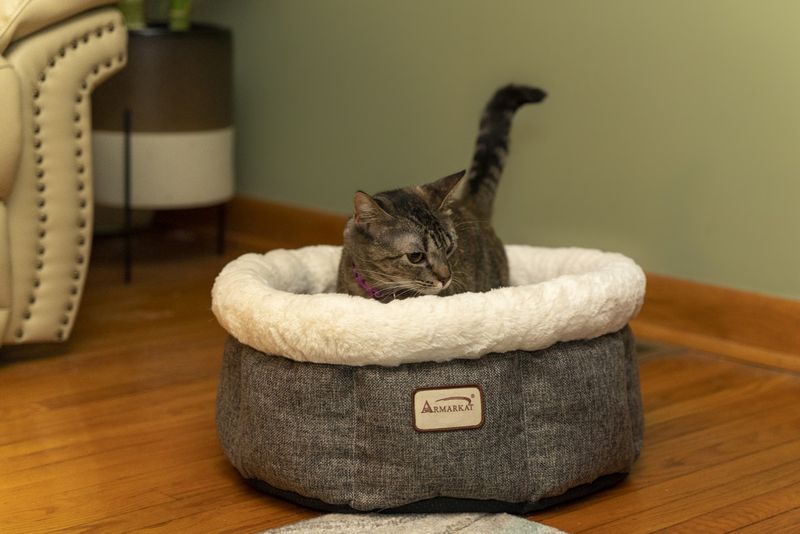
Cats value their independence and need private retreats where they can escape when feeling overwhelmed. Many owners forget this crucial aspect of feline happiness.
Create quiet zones with cozy hideaways in low-traffic areas of your home. A simple cardboard box, covered cat bed, or quiet corner shelf can become a sanctuary. Watch how your cat relaxes knowing they have a secure place entirely their own.
7. Gentle Massage Sessions
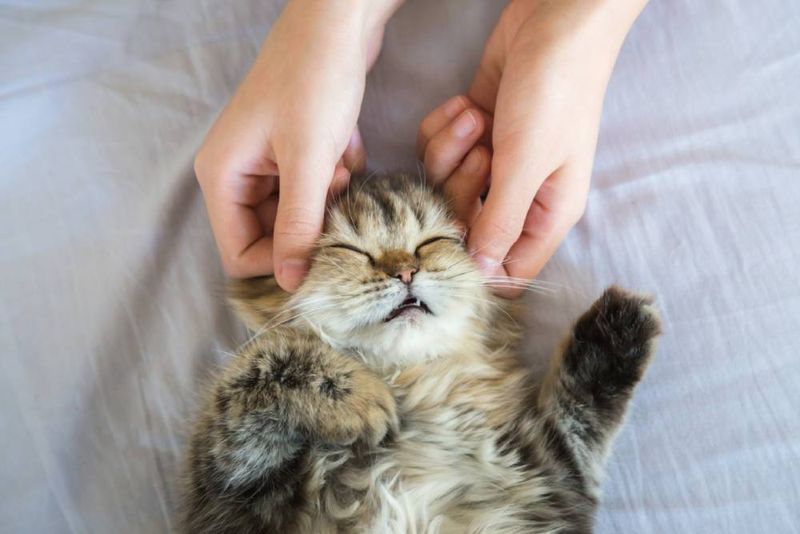
Most cats enjoy specific types of touch that mirror how mother cats groom their kittens. The base of the tail, under the chin, and behind the ears contain scent glands that feel pleasurable when stimulated.
Watch your cat’s body language during petting. Purring, relaxed posture, and pushing against your hand signal enjoyment. Incorporating gentle massage into daily cuddle time strengthens your bond while helping detect any unusual lumps or skin conditions.
8. Picking Them Up Without Warning
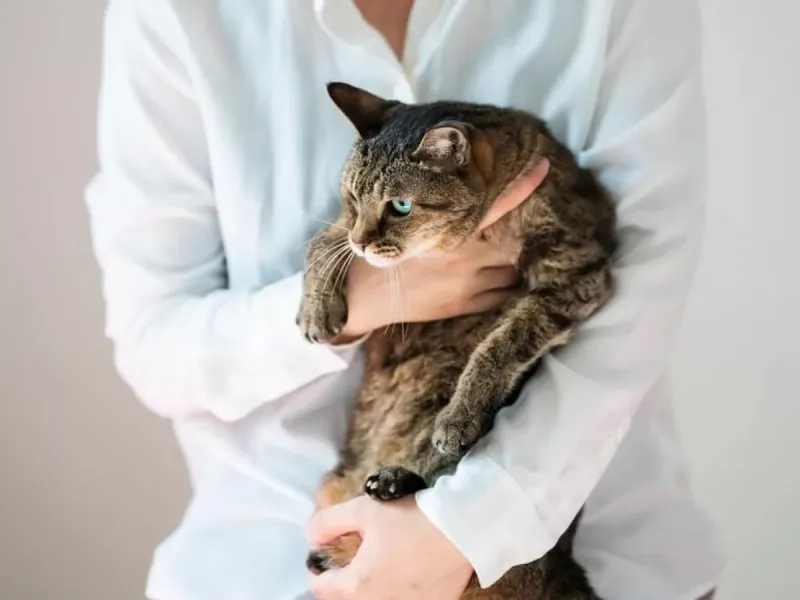
Suddenly scooping up your cat can trigger their instinctual fear response. Cats feel vulnerable when their feet leave the ground unexpectedly, much like we might feel if randomly lifted into the air.
Always telegraph your intentions by first making eye contact and extending your hand for a sniff. Then gently support both their chest and hindquarters when lifting. Some cats simply prefer staying grounded, so respect their preference if they squirm away.
9. Loud Music Or Sudden Noises
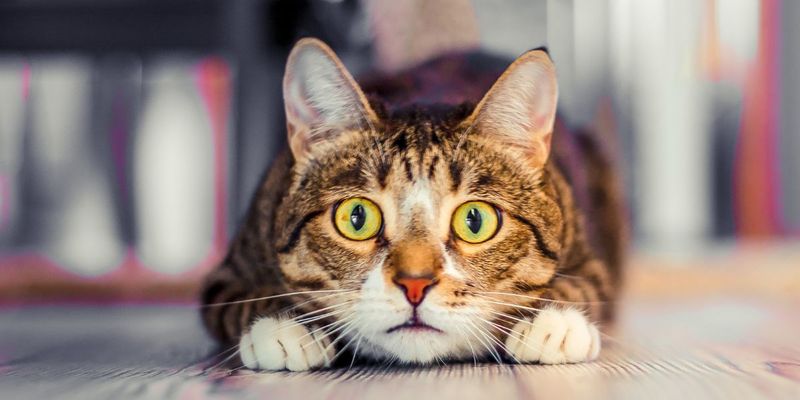
Cats have incredibly sensitive hearing that makes loud sounds genuinely painful. Their ears can detect frequencies up to 64kHz, compared to our measly 20kHz maximum.
Keep music at moderate volumes and avoid sudden loud noises when possible. Creating a sonically peaceful environment helps prevent stress behaviors like hiding, inappropriate elimination, or excessive grooming. Your cat will thank you by being more relaxed and social.
10. Forced Socialization
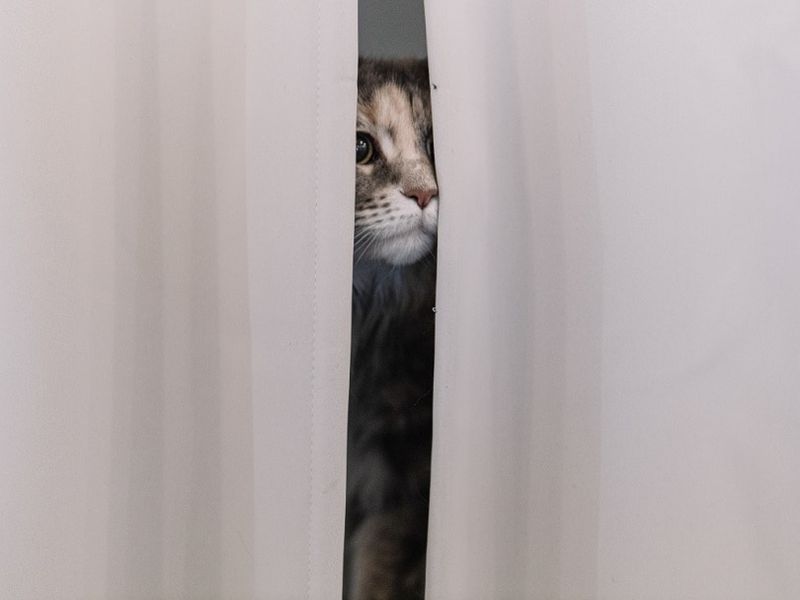
Cats should never be forced to interact with visitors or other animals. Pushing your cat into uncomfortable social situations creates lasting anxiety and fear responses.
Instead, provide elevated escape routes and hiding spots when guests visit. Let your cat approach new people on their terms. Reward calm behavior around strangers with treats or praise, creating positive associations without pressure.
11. Irregular Litter Box Cleaning
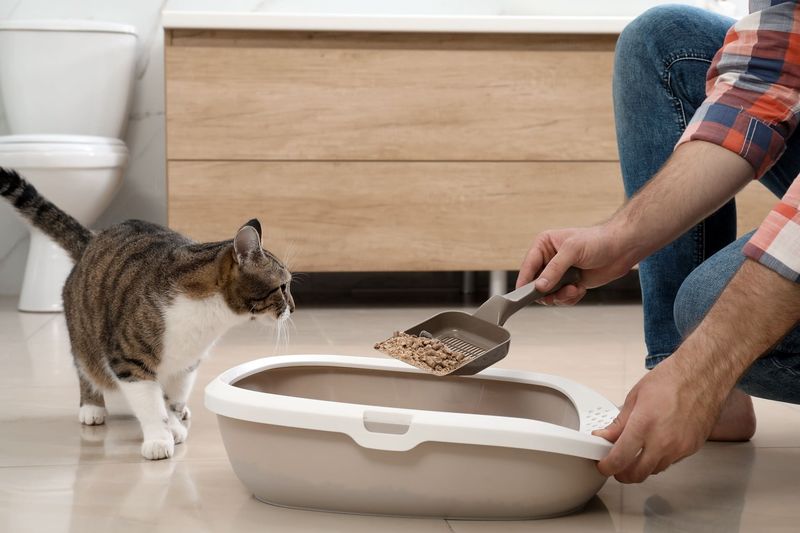
Cats are naturally clean animals who become genuinely distressed by dirty litter boxes. Their sensitive noses detect odors we might miss, making an unclean box truly offensive to them.
Scoop waste at least once daily, preferably twice. Complete litter changes should happen weekly, with occasional box washing using mild, unscented soap. Your reward will be fewer inappropriate elimination issues and a happier, healthier cat.
12. Punishing Normal Behaviors
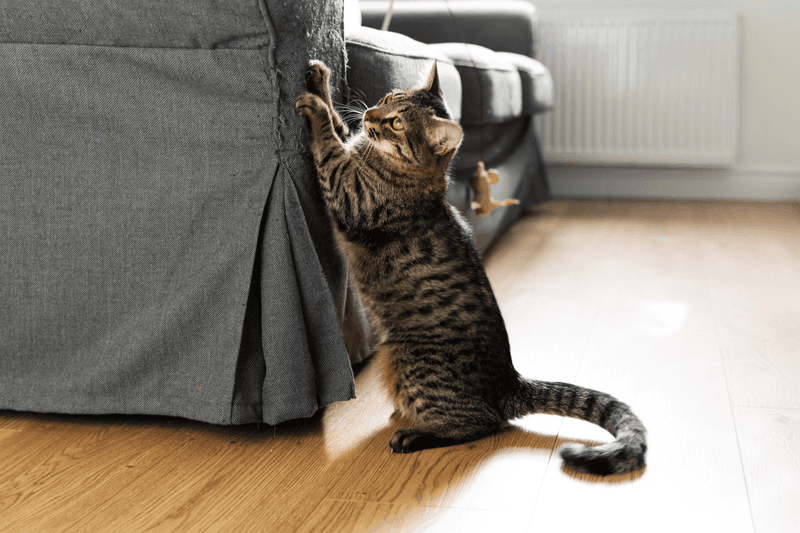
Scratching, climbing, and pouncing are natural feline behaviors, not signs of misbehavior. Punishing these instinctual actions confuses your cat and damages your relationship.
Instead, redirect unwanted behaviors to appropriate outlets. If your cat scratches furniture, place an appealing scratching post nearby. For counter jumping, create alternative elevated spaces. Working with rather than against your cat’s nature creates harmony in your home.
13. Staring Contests
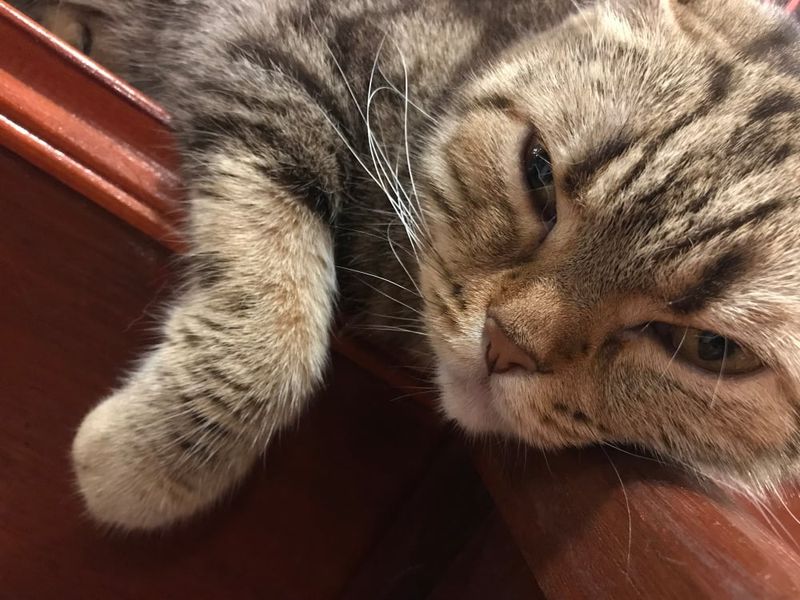
Direct, prolonged eye contact feels threatening to cats. In feline language, staring signals aggression or dominance, explaining why cats often approach people who aren’t looking at them.
When interacting with your cat, try the slow blink technique instead of staring. Look at them softly, then slowly close your eyes before opening them again. This communicates trust and affection in a language they understand.
14. Inconsistent Routines
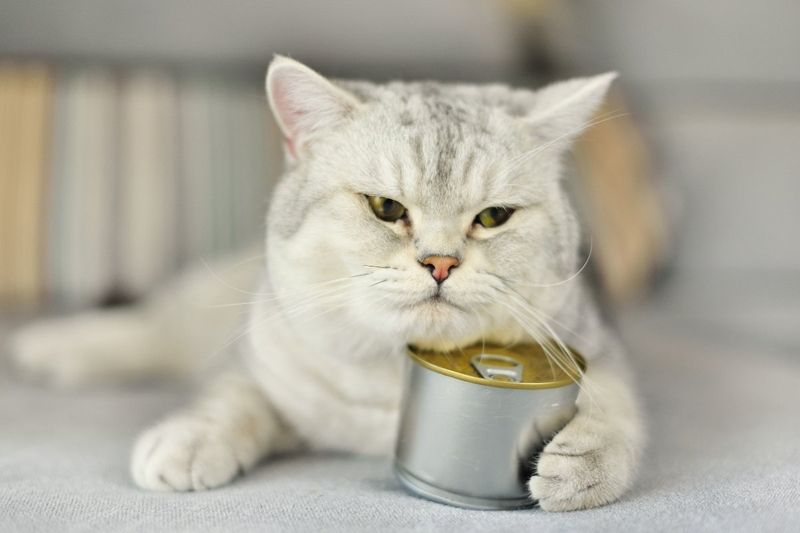
Cats find security in predictability. Sudden schedule changes or household disruptions can trigger stress behaviors like inappropriate elimination or excessive grooming.
Maintain consistent feeding times, play sessions, and sleep schedules when possible. During unavoidable disruptions like moving or travel, preserve familiar elements by keeping their bedding, toys, and feeding stations as similar as possible.
15. Scented Products Near Their Space
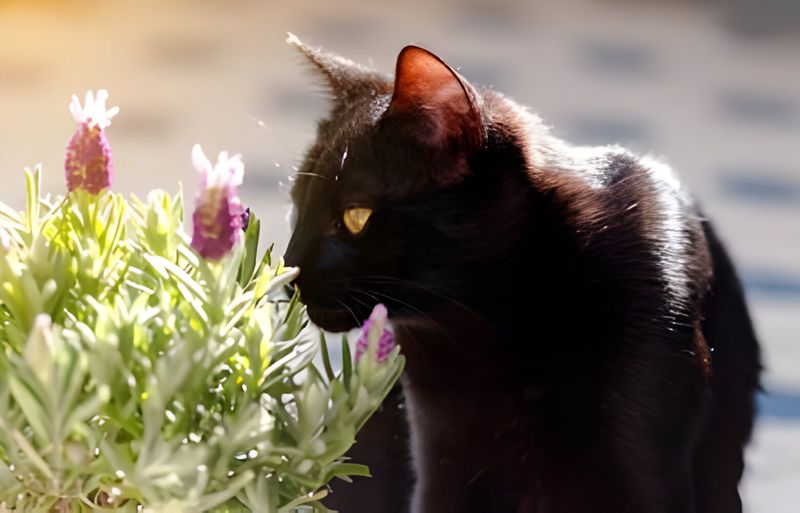
Strong perfumes, essential oils, and scented cleaners overwhelm your cat’s sensitive olfactory system. Their noses contain 200 million odor sensors compared to our mere 5 million.
Use unscented litter and mild, fragrance-free cleaners in areas your cat frequents. Keep essential oil diffusers away from their spaces, as some oils can be toxic to cats. Natural ventilation helps maintain air quality without artificial scents.






